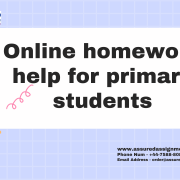Consultancy challenge
Mclaughlin International (MI) will undergo product development in order to position itself as a global leader in the digital provision of educational resources in the subject of Politics. Consultancy expertise: Product design and development; strategic brand management; educational publishing; market analysis; reputation management; user experience and user interface design.
Summary
Mclaughlin International is a publisher of textbooks and learning resources for university-level students. This year Mclaughlin celebrated 150 years of publishing. Today the publisher is part of the parent company Springer Nature. MI publishes under many imprints across Social Sciences, STEM, Humanities, Business, and Study Skills. They publish under the Pennywise Press imprint in the UK for a global audience and carry a selection of STEM textbooks from Sprinter as well as representing Mclaughlin Learning resources. Currently, the Politics Division at MI offers two flagship textbooks (Introduction to British Politics and Principles of Political Debate; both authored by Cliff Orton).
Although sales of these texts are healthy and consistent (see Appendix 1), there is a general appetite within the division – particularly following considerable structural change within the broader company environment (see Organisational Context section below) – to update and expand the product portfolio.
Organizational context:
Originally, Mclaughlin Education was a division of Mclaughlin Publishers Ltd, a wholly-owned subsidiary of Chase-Status Publishing Group. However, the contemporary organizational context is the outcome of a period of business structural change:
MI’s Mission
To advance learning by developing relevant and impactful course content that serves the needs of educators and supports the success of today’s students.
MI’s Vision
To offer users the best possible textbook for their course and support that with carefully built and appropriate technology solutions and interactive e-learning products.
MI’s Reputation
With a background in academic publishing and a reputation for working with some of the most respected authors in their fields, MI offers textbooks across a range of core subjects, and more recently this has expanded to include specialist textbooks in new and emerging disciplines. The reputation of MI means the publisher has been able to rely upon attracting world-famous authors to continue to contribute to their catalog of educational publications. The publisher itself promotes the idea that “It is this distinctive blend of quality content and international credibility that has enabled us to produce one of the most exciting pipelines in the industry”
Environmental context:
The revenues of the largest textbook publishers are falling steeply as students, in ever-increasing numbers, choose to forego even required textbooks for their university courses. Traditionally textbook publishers focus less on direct selling to students and instead concentrate on encouraging adoptions from lecturers, whereby they will set the text as core reading. With the inflation of student tuition fees, students are arguably hard-pressed to find textbook prices affordable. Consumer behavior is changing as students prefer digital content with expectations of digital resources being more affordable. Moreover, institutions are exploring and investing in digital resources and e-book services for students to make core texts more accessible. Campus bookstores across the country have suffered from declining textbook sales and have been forced into liquidation. Digital media is playing a larger role in the creation and delivery of course content; instructors, who have long relied upon educational publishers for their course content, can no longer be certain that students will acquire those materials at all. Actions are already taken: MIHE first identified the prospect for product development in the subject of politics twelve months ago by commissioning a rival consultancy firm to review their market offering and position. The previous consultants gathered and presented market data (for example, see Appendix 3) combined with an internal analysis of MI’s product performance (for example, see Appendix 2) that persuaded MI’s executive team that gearing the internal resources available and the potential for increasing market share, means the politics offer would most likely yield the greatest benefit to the publisher. MI will not be working with the former consultants again; the overall quality of their service was deemed satisfactory, however, it was felt they could seek external consultancy from a provider who better understood the nuances of the higher education sector as well as the needs of the stakeholders involved. Since that time, various internal communications (both formal and informal) have implied that MI’s executive team endorse a fairly conservative approach to product development. Meanwhile, amongst the marketing team, there is shared concern about a culture of top-level inertia toward embracing radical innovation and general inclination for risk-averse commissioning; and so it is widely believed that the preferred strategic options are likely defined, broadly, as: It is felt, particularly amongst staff who joined the publisher after the merger, that these prospects are unambitious and reflect a somewhat outmoded view on educational publishing and its future direction. Hence, on this matter, there is some misalignment between decision-making at a strategic Withdraw from the market and focus resources on existing titles. Update Heywood’s books with a new author.
Expand into new regional territories. level and the values held by those who implement operational level roles; this, in turn, has rendered action so far within this area overly cautious and lacking in traction. Despite the overall consensus that the opportunity for product development in this area should be a strategic priority for the publisher, there is yet to emerge an approach that can garner the support of all internal stakeholders.
Short term priorities:
Ultimately, the most pressing short-term priority is to establish a clear agenda for product development. Clearly, some possibilities to consider would be whether to commission and develop a new all-in-one text, update Heywood’s books with a new author, produce a new US Politics book, or perhaps more radically, pursue developing digital resources or target a niche section of the market that presently is under-serviced. Whatever the overall broader recommendations for evidence-led product development that your consultancy report may arrive at, you must be sensitive that in the short term your solutions will need to gain the moral support of both tiers within the publishers i.e. a) the top executives who are more conservative-leaning and b) the staff responsible for the implementation of new products at an operational level that want to launch products that will distinguish the publisher as pioneering their industry into a new era of consumer engagement. Operational limitations: A clear operational limitation that exists relates to the fact that evidently both of Orton’s textbooks are still highly regarded and sell well. There are big revenues involved and it is statistically a growing market – global curricula such as the International Baccalaureate (IB) are potential opportunities. Thus, it is important that any product development plan must avoid cannibalizing sales of the existing textbooks. More generally, MI outline the following operational limitations:
Consultancy Requirement
our consultancy brief is to develop a two-year product development plan that specifically aims to establish MI as a global leader in the provision of political educational resources. In your report, you • MIHE would need to adjust workflows and resource forecasting in order to accommodate more frequent updates.
Financial constraints:
• More students are searching for digital options, indicating the perception of a new generation who see content as something they don’t often have to pay for it. The shift in consumer behavior:
• Expanding, particularly any vertical market expansion, might impact MIHE’s reputation as a reputable Higher Education publishing house. Brand recognition:
• The market is saturated already. Hodder Education and Pearson Edexcel have already penetrated this market and have been operating for longer in this remit.
Competitive Forces:
should consider ways in which MI might take advantage of emerging developments in digital technology while considering (a) the publisher’s reputation and not wanting to cannibalize existing sales revenue and (b) the changing needs of the end-user experience and interface design within the context of a shifting higher education landscape.










